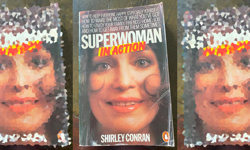During the last 18 months, five separate acquisitions, including LSN Media, Your Leek Paper and Nuneaton & District Newspapers, moved Iliffe News and Media, quietly and almost unnoticed into the top 10 list of UK regional press publishers. This encapsulates the ethos and approach of a business which does not court publicity but seeks to operate in a discreet and almost understated way.
INML was formed as a separate entity in 2001 when Yattenden Investment Trust plc saw the opportunity to consolidate its media interests which had remained largely unchanged for a number of years.
David Fordham
Current chief executive David Fordham was appointed in 2004; the latest chapter in a story which has seen him rise from junior administrator at Cambridge Newspapers in 1971 on a salary of £650; to his current position (presumably on more than £650 per annum!). In between times being, he thinks, one of the UK’s first male tele ads (wow, what a job but somebody had to do it!), working in various regional press roles including senior executive positions at Emap and elsewhere before returning to Cambridge as MD in 1999.
So, having joined ‘the big league’, with just under 1,000 employees, 33 titles and a combined circulation and distribution of well over 1.2 million copies in a marketplace they describe as ‘the East of England’ covering Essex, Suffolk, Cambridgeshire, Hertfordshire, Bedfordshire and Buckinghamshire as well Staffordshire, Warwickshire and Derbyshire, how significant a milestone was this for Iliffe?
"Being top 10 was not a specific goal of ours. This has come about as a result of the wider consolidation of the regional press, some organic growth and a series of acquisitions which we felt had the ‘fit factor’," says David. "This was not simply growth for growth’s sake. Making grand statements of ambition can leave you as a hostage to fortune, with things out of your own control."
"However, our growth has been very strategic after many years of little acquisition activity. This resulted from a board decision that the regional press was an industry we very much wanted to remain part of."
Staying on the subject of control, I ask him how the challenges facing him in running INML differed from those of his plc-driven peers.
"Without doubt we do enjoy a certain freedom that the plc groups do not. Decision making can be very quick with a flat group management hierarchy making us fleet of foot when we need to be. Prospective sellers will often prefer to deal with independents because of this, as well as the fact that we do not bring the ownership and competition baggage of some of the bigger players."
"Our independence also allows us to cultivate strong staff relationships and loyalty. For example, around 10% of Andy’s staff at Cambridge have 21 or more years service, providing real knowledge and stability."
"We can also avoid some of the other pitfalls of being hostage to the mood swings of institutional investors and the City as a whole. Whilst our margin is viewed as being very good, it is not the driver of all we do. We keep a good balance between operating margins and publishing investment in our titles."
"This allows us to play the longer game without always having to take short term measures in response to six-month trading updates and cyclical downturns. Benchmarking is interesting but not the be all and end all."
"I do have a real concern about the one size fits all approach that is sometimes promoted. Newspapers are not formulaic MacDonald’s-like franchises, but are woven into, and must reflect and represent, the uniqueness in the communities they serve."
"Life is local," emphasises David, clearly a conscientious member of the NS Marketing Committee!
Having said all of that, he is quick to point out that, as it grew, INML would, of course, look for the benefits of scale.
"We have developed a more cohesive back-of-house structure whilst allowing considerable autonomy to remain in the key customer facing aspects of the business," he says.
By this point, I’ve summoned up the courage to ask my most controversial question: does INML have any interest in the currently-for-sale Trinity Mirror titles and, in particular, given its geographical fit, Coventry Newspapers Ltd?
"We still feel that the regional press has a bright future," he says. "We have backed that up by continuing to invest during one of the most difficult trading periods we have known. Not only have we made several acquisitions, but we recently announced a £9m extension to our Cambridge press as well as a £1m+ investment in our systems and IT infrastructure."
Good response, but it doesn’t answer the question!
However, David continues: "It’s fair to say that we will be asking for a copy of the Trinity Mirror prospectus!" Then he adds provocatively: "Did you know that the Iliffe family used to own most of their Midlands operation up until quite recently?"
"I would say that we would rule nothing out but in this case it might be that the community based weekly titles would offer the best fit. We shall see...!"
Andy Gough
This seems like an appropriate time to raise some of the key publishing issues facing INML. While the answers don’t surprise me, I’m struck by the absolute focus Andy Gough brings to the key issues, rather than the lengthy - and almost certainly unachievable - ‘to do’ list which is often volunteered in response to this question.
"It’s about delivering audiences profitably," he begins. "Firstly, how can we either stem, or at least manage, the decline in the number of people buying our paid-for newspapers?"
"Then there is the relationship between our other print channels and the growing importance of online delivery to ensure that we can ‘own’ and provide a critical mass of audience to our advertisers. These are simply the two major issues facing our business."
But specifically, how is this being tackled?
"We don’t seek to be pioneers," says Andy. "We have been looking around the industry for perceived best practice and are now considering how these things might apply in Cambridge and the wider INML Group."
"For example, it would appear that overall, evening titles which have either switched to overnight-only production or those that provide early morning and updated editions are faring better than average. The perception issue only appears to be strained where home-delivered copies have been sent out in the morning or where titles have failed to carry major local breaking news. As we are not being driven by cost, this might allow us to encompass the best of both worlds."
This insight, allied to a piece of brand positioning research planned by Andy and his team might provide the ingredients for one of this year’s major initiatives at Cambridge, then.
Alongside this, however and equally interesting, is a pragmatism that accepts the need for a migration of business models to recognise that the shift in newspapers from paid to free could be becoming inevitable.
Given their increasing significance as a result of this, I ask about advertising revenues, and I’m pleased to hear that, in line with many other publishers, some green shoots of recovery had been emerging for INML in the early part of 2007.
Andy says: "We still believe that the majority of the downturn was cyclical in nature and that advertisers will, again, have the need to communicate with consumers in an engaging and response-driving way. However, we shouldn’t pretend that some of what has occurred isn’t fundamentally structural or that everything that has gone is coming back."
Becky Moffat
Much of this shift has been blamed on the internet, so what is INML’s position with regard to digital media?
It already owns Channel TV, the smallest of the ITV franchises, has over 20 existing websites, and recently acquired internet specialist Apollo Digital Developments to bring in-house the digital media expertise not naturally found within the regional press plus its leading edge content management system. This is being seen internally as an exciting development that should help accelerate the group’s digital media ambitions. And last - but by no means least – it has appointed Becky Moffat as head of digital media.
This clearly points to an organisation actively engaged in understanding and dovetailing online and broadcast media, where possible, with the traditional elements of the business - turning a threat into an opportunity.
Members of the team recently visited JP’s flagship centre at Preston and, based on what they saw, have drawn up a plan to fully engage with staff, turning any nervousness into willingness and excitement, through a collaborative approach to shaping the future. This will include investment in training and equipment, and the appointment, in the four main publishing centres, of experienced digital editors from outside the traditional newspaper industry.
I ask Becky, who has previously held senior positions in the financial services sector with Abbey and only joined INML late in 2006, for her perspective on the challenges.
"My early impression has been one of a lack of confidence," she says. "The strength of our online inventory and offering has been underestimated - we are offering content and services every bit as good as some of the new entrants and so-called digital experts. Our ability to sell commercial packages, though, has been affected by the juxtaposition between print and internet. What do we expect from our sales people and, have we either equipped them with the skills or given them bonus targets that reflect the change?"
This last rhetorical question suggests to me that action is pending.
She continues: "Our view is that our digital interests will both compete with and offer synergies alongside our print portfolio, much in the same way as the internal competition that would exist between a daily and weekly free."
"There is clearly a lot to do to develop our services and revenues, which I don’t think will all come from traditional advertising. We also need to understand where we are now, what consumers want from us online and what our strategy needs to be going forward, and, to that end, we plan to carry out some research in the spring of this year."
"We are confident that there is scope for much of the INML digital division’s growth to be organic, but we would never say never regarding possible future acquisitions."
Finally, I asked her what she has found to be the biggest differences between financial services and regional media.
"Two main things, I guess. Coming from a heavily regulated sector, I’m filled with excitement about the sheer scope for creativity that we have. Secondly, it’s great that we seem to have a collaborative approach to learning and sharing among publishers as we face this voyage into the unknown together. I can tell you, there was little chance of this with, for example, my opposite number at Barclays!"
Given the upbeat nature of our discussions, I give the last word to David, asking him how he and his board view the future.
"We retain absolute confidence in the sector over the next 10 to 20 years and beyond," he says. "Print will remain an essential constituent element, but as part of a wider multi-channel delivery of our news and information services."
"We must protect and leverage our core brands, demonstrate real creativity and publishing innovation and focus both on developing new markets while not forgetting the importance of taking market share from our competitors. We will only do this bit by retaining our local focus."
Discreet and understated they may be, but David and his team demonstrate a passion and vision which suggest exciting times ahead for the newest member of the Top 10 club.
FEATURE
Going large but staying local
After recent acquisitions, Iliffe News & Media (INML) moved into the top 10 list of regional publishers. Russell Borthwick met with three of Iliffe’s top executives (chief executive, David Fordham, Andy Gough, MD of Cambridge Newspapers, and newly appointed head of digital media, Becky Moffat) to discuss the challenges facing one of the UK’s largest ‘family’ publishing and media businesses.










